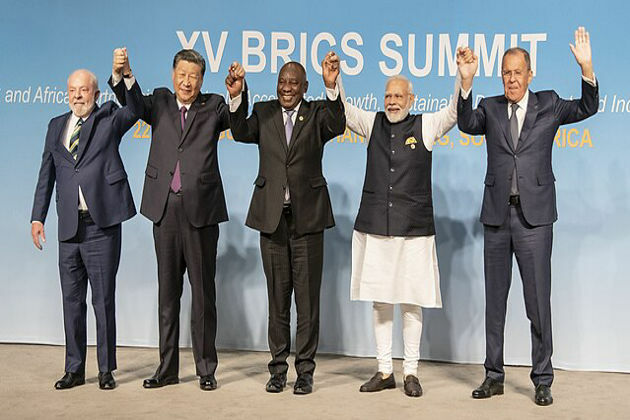The Role of Banks and Insurance Companies in Promoting Financial Inclusion
Evertise
20 May 2023, 16:54 GMT+10

Financial inclusion is a critical aspect of socioeconomic development, ensuring that all individuals and businesses have access to essential financial services. In this modern era, banks and insurance companies play a significant role in promoting financial inclusion. By offering a range of services, these institutions bridge the gap between the unbanked population and the formal financial system, empowering individuals, fostering economic growth, and mitigating risks. This article explores the multifaceted role of banks and insurance companies in promoting financial inclusion, as well as the distinctions between the two sectors.
I. Understanding Financial Inclusion: Financial inclusion refers to the accessibility and availability of affordable financial services, including banking, savings, credit, and insurance, to all segments of society. It aims to empower individuals, households, and businesses, particularly those in underserved and marginalized communities, by providing them with tools to manage their finances, plan for the future, and protect against unexpected risks. By bringing the unbanked and underbanked into the formal financial system, financial inclusion enhances economic stability and fosters inclusive growth.
II. The Role of Banks in Promoting Financial Inclusion: Banks are at the forefront of financial inclusion efforts, offering a wide array of services to meet the diverse needs of individuals and businesses. Their primary role in promoting financial inclusion can be outlined as follows:
1. Basic Financial Services: Banks provide essential services such as savings accounts, payment systems, and remittance facilities. According to the World Bank's Global Findex Database, between 2014 and 2017, the number of adults with a bank account increased by 515 million globally, with significant progress made in developing countries.
2. Credit Facilities: Access to credit is crucial for individuals and businesses to invest, expand, and overcome financial constraints. Banks offer various credit products, including microloans, small business loans, and mortgages, allowing underserved individuals and enterprises to access capital and improve their economic prospects. For example, in India, the Pradhan Mantri Jan Dhan Yojana initiative has facilitated the opening of over 430 million bank accounts, providing access to credit and financial services for previously excluded populations.
3. Financial Education: Banks play a pivotal role in enhancing financial literacy by offering educational programs and tools. Through workshops, seminars, and online resources, they empower individuals to make informed financial decisions, manage debt, and plan for the future effectively. According to a survey conducted by the Global Financial Literacy Excellence Center, financial education programs provided by banks have been shown to positively impact individuals' financial knowledge and behavior.
III. The Role of Insurance Companies in Promoting Financial Inclusion: Insurance companies also play a vital role in promoting financial inclusion by providing risk management tools and protection against unforeseen events. Their contributions include:
1. Microinsurance: Insurance companies develop tailored products, such as microinsurance, to cater to the specific needs and affordability of low-income individuals and communities. Microinsurance covers risks associated with health, agriculture, livestock, and natural disasters, ensuring that even the most vulnerable populations have access to protection. For instance, in Kenya, the Kenyan Insurance Regulatory Authority reported that the number of microinsurance policies issued grew by 34% in 2019, reaching over 16 million policies.
2. Enhancing Resilience: By offering insurance products, companies mitigate risks for individuals, households, and businesses. Insurance coverage enables individuals to recover financially from unexpected events, such as accidents, illnesses, property damage, or business disruptions. According to the Microinsurance Network, microinsurance coverage has the potential to protect over 4 billion people globally, contributing to their financial resilience.
3. Long-Term Financial Planning: Insurance companies provide products like life insurance, retirement plans, and annuities, enabling individuals to plan for their long-term financial security. These products ensure that individuals can protect their families and accumulate assets over time, creating a foundation for a stable future. According to a survey conducted by LIMRA, 54% of households in the United States with life insurance cited it as a crucial tool in their financial planning.
IV. Banking vs. Insurance: Key Distinctions and Collaborations: While banks and insurance companies share the common goal of promoting financial inclusion, they operate in distinct realms. Understanding the differences between banking and insurance is crucial to grasp their complementary roles:
1. Nature of Services: Banks primarily offer financial services, including deposit accounts, credit facilities, and payment systems. Insurance companies, on the other hand, focus on risk management and protection against uncertainties, providing policies and coverage for various contingencies.
2. Regulatory Environment: Banks are subject to specific banking regulations, including capital requirements, liquidity regulations, and consumer protection measures. Insurance companies, on the other hand, are governed by insurance-specific regulations, such as solvency requirements and policyholder protection laws. For instance, Insurance in India is regulated by the IRDA of India. Similarly, Insurance in the USA is regulated by NAIC.
3. Collaboration: Despite their differences, banks and insurance companies often collaborate to promote financial inclusion. Many banks offer insurance products through partnerships with insurance providers, allowing customers to access a broader range of financial services conveniently. This collaboration strengthens the value proposition for customers, as they can fulfil their banking and insurance needs in one place.
Banks and insurance companies play crucial roles in promoting financial inclusion by providing individuals and businesses with access to a wide range of financial services and risk management tools.
Banks offer essential banking services and credit facilities, while insurance companies provide protection against risks and assist with long-term financial planning. Through their collaborative efforts and innovative solutions, these institutions contribute to bridging the financial inclusion gap, empowering underserved populations, and fostering inclusive economic growth.
By recognizing the significance of their roles and working towards greater accessibility, banks and insurance companies can continue to make a meaningful impact on financial inclusion worldwide. The combined efforts of banks and insurance companies pave the way for a more inclusive and financially secure future for all.
 Share
Share
 Tweet
Tweet
 Share
Share
 Flip
Flip
 Email
Email
Watch latest videos
Subscribe and Follow
Get a daily dose of Texas Guardian news through our daily email, its complimentary and keeps you fully up to date with world and business news as well.
News RELEASES
Publish news of your business, community or sports group, personnel appointments, major event and more by submitting a news release to Texas Guardian.
More InformationBusiness
SectionGold ETF inflows hit 5-year high as tariffs drive safe-haven bets
LONDON, U.K.: Physically backed gold exchange-traded funds recorded their most significant semi-annual inflow since the first half...
PwC: Copper shortages may disrupt 32 percent of chip output by 2035
AMSTERDAM, Netherlands: Some 32 percent of global semiconductor production could face climate change-related copper supply disruptions...
U.S. stocks recover after Trump-tariffs-induced slump
NEW YORK, New York - U.S. stocks rebounded Tuesday with all the major indices gaining ground. Markets in the UK, Europe and Canada...
Stocks slide as Trump unveils 25% tariffs on Japan, S. Korea
NEW YORK CITY, New York: Financial markets kicked off the week on a cautious note as President Donald Trump rolled out a fresh round...
BRICS issues rebuke on trade and Iran, avoids direct US criticism
RIO DE JANEIRO, Brazil: At a two-day summit over the weekend, the BRICS bloc of emerging economies issued a joint declaration condemning...
BP appoints ex-Shell finance chief Simon Henry to board
LONDON, U.K.: This week, BP appointed Simon Henry, former Shell finance chief, to its board as a non-executive director effective September...
Business
SectionGold ETF inflows hit 5-year high as tariffs drive safe-haven bets
LONDON, U.K.: Physically backed gold exchange-traded funds recorded their most significant semi-annual inflow since the first half...
PwC: Copper shortages may disrupt 32 percent of chip output by 2035
AMSTERDAM, Netherlands: Some 32 percent of global semiconductor production could face climate change-related copper supply disruptions...
U.S. stocks recover after Trump-tariffs-induced slump
NEW YORK, New York - U.S. stocks rebounded Tuesday with all the major indices gaining ground. Markets in the UK, Europe and Canada...
Stocks slide as Trump unveils 25% tariffs on Japan, S. Korea
NEW YORK CITY, New York: Financial markets kicked off the week on a cautious note as President Donald Trump rolled out a fresh round...
BRICS issues rebuke on trade and Iran, avoids direct US criticism
RIO DE JANEIRO, Brazil: At a two-day summit over the weekend, the BRICS bloc of emerging economies issued a joint declaration condemning...
BP appoints ex-Shell finance chief Simon Henry to board
LONDON, U.K.: This week, BP appointed Simon Henry, former Shell finance chief, to its board as a non-executive director effective September...







